Pippa: Ishaan Khattar Film Glorifies War And India's Greatness
This is #CriticalMargin, where Ishita Sengupta gets contemplative over new Hindi films and shows. Here: Pippa.
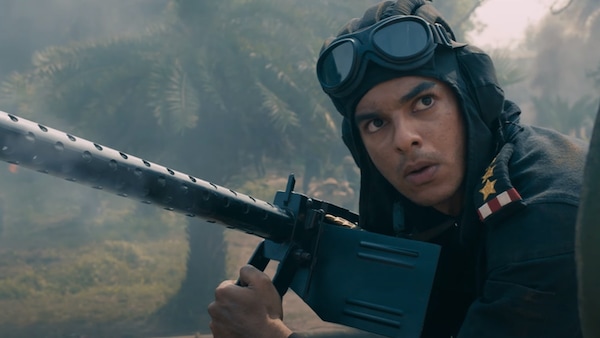
Last Updated: 07.09 AM, Nov 10, 2023
IF Raja Krishna Menon’s Pippa, a fictional retelling of India's participation in the 1971 liberation war in Bangladesh, was a person, it would be a man. More specifically, it would be a cis-het white man with such an acute saviour complex that he would take every opportunity to remind us of his role in emancipating someone. He would do it so much and so often that the primary plot of subjugation would be reduced to a footnote. If Pippa was a person, you would not like to meet him.
As a film, it fares no better. On paper, Pippa is based on the 1971 Battle of Garibpur, where India fought against Pakistan in the eponymous village situated in present-day Bangladesh and emerged victorious; Menon adapts it from Brigadier Balram Singh Mehta’s book, The Burning Chaffees, where he outlined that during the war, the Pakistani resources could not compete with the Indian Army’s amphibious tanks, also known as ‘pippa’. What transpires during the runtime, however, is a one-note glorification about India, the Indian army, and — more worryingly — of war.
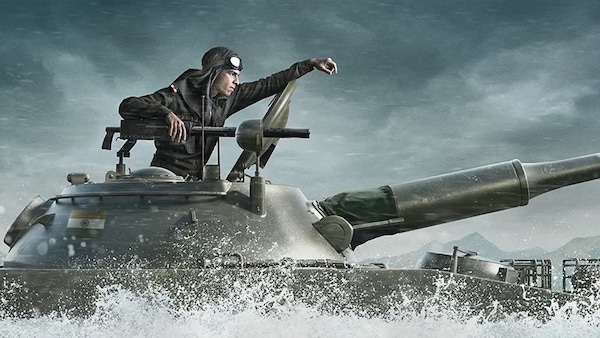
Menon’s outing is an addition in the long list of Hindi films that use warfare as an excuse to make a case for malignant nationalism. It is also the latest in the increasing line of Hindi films that are circumventing the obvious routes — terrorist attack in India by some kohl-eyed person in Pakistan; spy drama set in Pakistan where an Indian man saves the day — and seeking ingenious ways to arrive at the same point. The focus, therefore, is on Bangladesh’s Liberation War where the entirety of East Pakistan had mobilised forces, sacrificed thousands of lives and braved atrocities by West Pakistan to gain autonomy as a nation. India had been an ally in what was a genocide situation. But if Menon’s film is to be believed, then it is India and India alone that made the autonomy of Bangladesh possible.
Pippa, written by Ravinder Randhawa, Tanmay Mohan and Menon, gives this impression in two ways. Firstly, not one scene is designed that does not underline the greatness of India in its decision to help out the neighboring nation. The film ends with a line that says, “sometimes to not fight is not an option” but this is putting things lightly. Throughout its duration, Pippa makes space only for Indian soldiers getting killed mercilessly; it is them who make elaborate plans of helping Bangladesh in the war. Granted, the basis of the film is a book written by an Indian officer but its tendency to show nothing of Bangladesh is misleading and objectively wrong. This stilted intent is most visible in the opening scene, also the sole reference of resistance in Bangladesh, where a group of West Pakistani police officers enter Dhaka university and open fire on students. The entire part is so comically staged and crafted that it not dilutes the intensity of the moment but also undoes any speck of sincerity expected of the film. The cops just saunter in and the students just fall on the sides. Even Salman Khan puts more effort into his scenes than this.
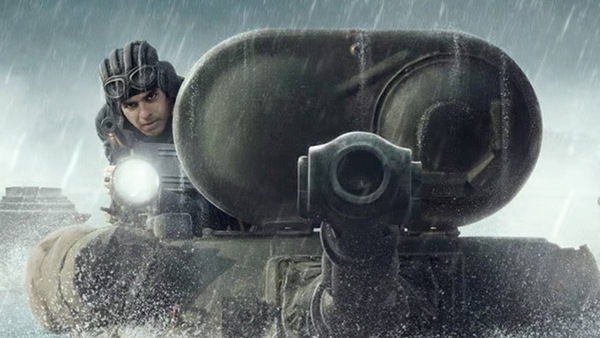
Pippa’s desire to exalt everything India is so much that it also, unsurprisingly, makes a mockery of Pakistani soldiers. They are not depicted as much as used as a narrative punching bag. They are freely derided for their cruelty in ways that are funny for being so abrasive. Scene after scene, lines like “Pakistanis have killed innocent people” are deployed with variations.
All of this would have made some sense if the thematic centerpiece was well done. Menon tells the story of the India-Pakistan war through the coming of age of Balram (Ishaan Khattar), a defiant officer who routinely disappoints his elder brother, Major Ram (Priyanshu Painyuli), and his sister Radha (Mrunal Thakur). On some level, the film is about the interpersonal sibling ties and the way they lose and find each other during the war. As an idea this works because imbuing a war film with a humanist core allows it to make observations about the event instead of simply mining sympathy. And that, in this case, the protagonist is someone who admits that when he joined the forces he had little idea of what it entailed, as his elder brother persuaded him, readies the ground for a commentary.
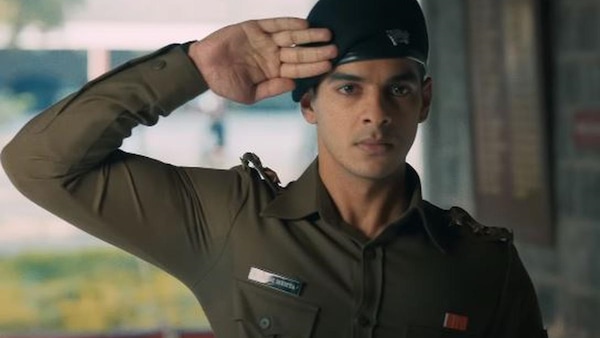
Pippa stays so far from taking a stand that it eventually ends up elevating bloodshed. Multiple scenes in the film include the tank destroying the army and Khattar’s character heaping praise on his men without halting for a moment of contemplation, to gauge the implication of war itself. Such straightforwardness employed by Menon not only makes Pippa a lesser film but also speaks of the makers’ social blindspot in making something like this at a politically-charged time like the present and refusing to offer any analysis or comment.
This simplistic approach of the film also makes the actors, all of whom are gifted, look miscast. There is a certain likeability in Painyuli as evident in most of his iterations. But saddled with the role of a flawless elder brother who spends his time nitpicking his siblings, he has nothing much to do. The same is true for Thakur. As Radha, we are told that she is a free bird, rebellious in her ways. The only proof of this is her interest in cryptography, supposedly a “manly” hobby. Even then, it is Khattar who seems most out of place. There is a vagueness about the 28-year-old and his short filmography — made up of diverse, if indistinct, choices. Pippa could have been career-altering if only the film had tried hard enough to lend his character more layers than wisecracks. Think of Vicky Kaushal in Sardar Udham (2021) and think of what filmmaker Shoojit Sircar did with the actor through the character. For Khattar too, there were possibilities that were snuffed at the expense of mindless heroism.
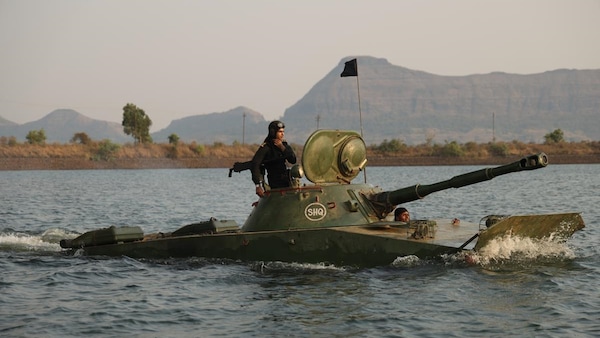
At this moment, the discipline with which these Pakistan-bashing films are made and released has started to be amusing. What is funnier, however, is the casting. There is a piece somewhere about how in such films, the same set of actors are cast as Pakistani officers, Indian bureaucrats and Indira Gandhi. I imagine them spending their days wearing wigs, staying in character, sipping tea together and laughing at us — the poor critics who can no longer tell one hyper-nationalistic film from another.
(Disclaimer: The views expressed in this column are those of the author and do not necessarily reflect the official policy or position of OTTplay. The author is solely responsible for any claims arising out of the content of this column.)
